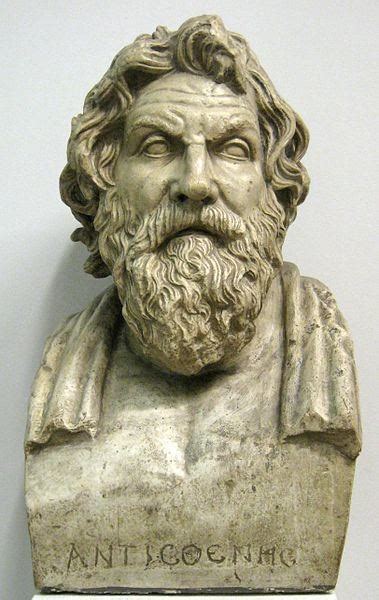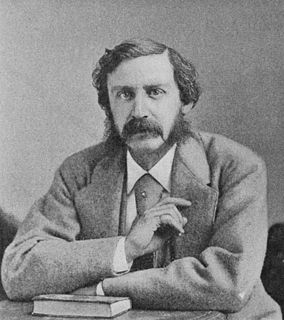A Quote by Miguel de Cervantes
The poet may say or sing, not as things were, but as they ought to have been; but the historian must pen them, not as they ought to have been, but as they really were.
Related Quotes
It is one thing to write as poet and another to write as a historian: the poet can recount or sing about things not as they were, but as they should have been, and the historian must write about them not as they should have been, but as they were, without adding or subtracting anything from the truth.
The poet, being an imitator like a painter or any other artist, must of necessity imitate one of three objects - things as they were or are, things as they are said or thought to be, or things as they ought to be. The vehicle of expression is language - either current terms or, it may be, rare words or metaphors.
In the older times it was seldom said to little girls, as it always has been said to boys, that they ought to have some definite plan, while they were children, what to be and do when they were grown up. There was usually but one path open before them, to become good wives and housekeepers. And the ambition of most girls was to follow their mothers' footsteps in this direction; a natural and laudable ambition. But girls, as well as boys, must often have been conscious of their own peculiar capabilities,--must have desired to cultivate and make use of their individual powers.
So, then, the best of the historian is subject to the poet; for whatsoever action or faction, whatsoever counsel, policy, or war-stratagem the historian is bound to recite, that may the poet, if he list, with his imitation make his own, beautifying it both for further teaching and more delighting, as it pleaseth him; having all, from Dante’s Heaven to his Hell, under the authority of his pen.
As a philosopher, if I were speaking to a purely philosophic audience I should say that I ought to describe myself as an Agnostic, because I do not think that there is a conclusive argument by which one can prove that there is not a God. On the other hand, if I am to convey the right impression to the ordinary man in the street I think that I ought to say that I am an Atheist, because, when I say that I cannot prove that there is not a God, I ought to add equally that I cannot prove that there are not the Homeric gods.
Living in the now is freedom from all problems connected with time. You ought to remember that sentence, you ought to memorize it, and ought to take it out, you ought to practice it, you ought to apply it. And most of all, you ought to rejoice in it because you have just heard how not to be wretched, miserable you any more but to be a brand new, and forever brand new man or woman.
We are constantly being surprised that people did things well before we were born. We are constantly remarking on the fact that things are done well by people other than ourselves. "The Japanese are a remarkable little people," we say, as if we were doing them a favor. "He is an Arab, but you ought to hear him play the zither." Why "but"?
There was only really one time that I had a substantive interaction with the president [Barak Obama] directly, and that was in 2013 when we were deciding whether to file a brief in the first gay marriage case, the Perry against Hollingsworth case. That was a weighty decision about whether the United States government was going to come in and say that heightened scrutiny ought to apply and some state bans on same-sex marriage ought to be unconstitutional. And that was the one time in my tenure where I thought I ought not make this decision without talking to the president.






































